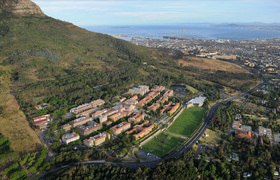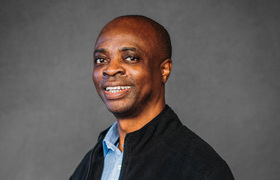Does changing the medium change the way of doing things?
11 September 2020 | Video editing X CON Films.
On 7 September 2020, the University of Cape Town (UCT) hosted a challenging conversation focused on whether changing the medium can change the way of doing things. This event was the fifth in a series entitled Unleashing the new global university.
Covid-19 has radically changed the ways that universities do everything: research, teaching, social responsiveness and internationalisation. International students have gone home or are in lockdown unable to physically experience the countries they are visiting; they are completing courses through remote learning. Conferences have gone online. Researchers are collaborating on virtual platforms.
Ironically, the lockdown has seen an opening up of connections, as distance ceases to be a barrier. While the opportunity to tangibly experience the location has gone, there have been many positive aspects to these changes, which universities have embraced, and are looking to take into the future.
The great hope has been that we can use the new technologies on which we are now relying during the pandemic to be more creative in the ways we shape international experiences and collaborations, and to do so in ways that lessen the negative characteristics of the old model.
How will changing the medium challenge the nature of global relationships? What have the opportunities been to decentre and disturb existing internationalised power relations?
This session will creatively address how more equal relationships might be formed; how digitally mediated forms of global engagement might enable what Nancy Fraser calls “participatory parity”.
Host
- Mamokgethi Phakeng, vice-chancellor, UCT
Moderator
- Laura Czerniewicz, professor, director: Centre for Innovation in Learning and Teaching (CILT), University of Cape Town, South Africa
Participants
- Monica Kerrets-Makau, academic director for Africa, Thunderbird School of Global Management, Nairobi, Kenya
- Kate Bowles, associate dean international, Faculty of the Arts, Social Science and Humanities, University of Wollongong, Australia
- Nagla Rizk, professor of economics and founding director, Access to Knowledge for Development Center (A2K4D), School of Business, the American University in Cairo, Egypt.
 This work is licensed under a Creative Commons Attribution-NoDerivatives 4.0 International License.
This work is licensed under a Creative Commons Attribution-NoDerivatives 4.0 International License.
Please view the republishing articles page for more information.





